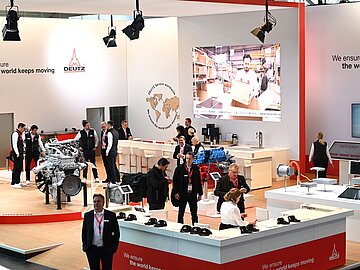
WELCOME TO THE NEWS SECTION
Stay informed about the latest developments in our company! Read our press releases to find out what keeps us moving and what milestones we have achieved. You will also find suitable images and informative reports about DEUTZ.


Q1 2025 RESULTS
Dr. Sebastian C. Schulte, CEO, and Oliver Neu, CFO, discussed the Company’s results for Q1 2025 on April 30, 2025 at 10.00 am CET in a conference call.


